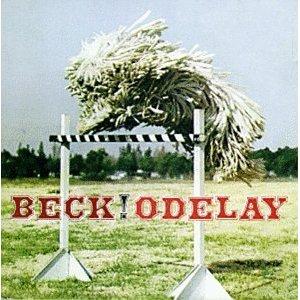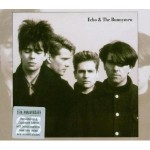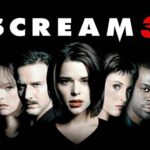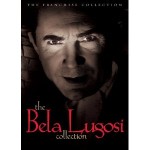 By Jae-Ha Kim
By Jae-Ha Kim
Chicago Sun-Times
July 30, 1997
It was early in Los Angeles and Beck Hanson sounded tired. Phoning from LAX – where, in an hour, he would board a plane for Tokyo – the artist currently known as Beck spoke candidly and seriously about his metamorphosis from perceived one-hit wonder to the most important musician of his generation.
“If I’m somewhat rested and awake, I can be articulate,” Beck sleepily said. “But I’m not always able to express how I feel. These aren’t very articulate times. Everything’s sunk to the lowest common denominator in popular culture, so it’s hard to find an intelligent place in that whole mix.”
With his flushed cheeks and goofy ’70s style suits, Beck, 27, has the look of a high school junior going to his first big dance. But his wide-eyed stance is deceiving. Two years after “Mellow Gold” spawned the slacker hit “Loser,” Beck struck a more universal chord with 1996’s “Odelay” – a stunning collection of material that effortlessly married folk rock with hip-hop and tossed in a sprinkling of world music, nonsensical donkey heehaws and answering machine snippets that somehow all made sense.
Never mind that the Spice Girls have done better commercially than both of Beck’s albums combined. (“Odelay” has sold 1.3 million copies in the United States. “Mellow Gold” is just shy of the million mark.) The fact is, few groups take the kind of musical risks that Beck takes for granted.
Lauded by critics nationwide as the best artist of 1996, Beck made the transformation from an eccentric slip of a man to the thin white hope that would help save the music industry with his evangelical stage shows. Along with Neil Young, he is the most anticipated performer at this year’s H.O.R.D.E. Fest, which rolls into the New World Music Theatre in Tinley Park on Sunday.
He spoke to us in the wake of one of the most remarkable years in pop history.
Q. When you’re onstage, you talk often of “regulating.” What does that term mean to you?
A. (Laughs) Regulating to me is something that brings us all together. It’s a hip-hop term. It’s something I first heard in a Warren G song about four years back. I didn’t know what it meant for a long time, and I just started saying it because it felt good to say it. I think it’s good and healthy for people to embrace a mantra, even if they have no idea what it means.
Q. Why did you hook up with the H.O.R.D.E. tour?
A. It’s a different scene than our touring thing. Also, we’d been talking to Neil Young for a long time about touring together so it seemed like a good time to do it.
Q. After Neil’s ham sandwich accident (he cut his hand with a knife), are you sticking with butter knives?
A. Oh yeah, my knives are kind of dull. I haven’t gotten a sharpener yet. I’ve been meaning to pick one up. My fingers regenerate though. I have some homeopathic, finger-regenerating pills. I’m marketing that. You’ll be able to mail order it through my next record.
Q. Which will be released when?
A. I’m not sure yet. We’re still on tour. We’ll probably be done touring in October and I’ll start working on it then. I just finished a song for (“Trainspotting” director) Danny Boyle’s new film (“A Life Less Than Ordinary”). It’s for the soundtrack, and it’s supposed to be in the climax scene. I don’t know what kind of climax that would be, but I trust him. There’s not even a working title for the song at this point though. It’s pretty fresh.
Q. Is it a continuation of the things you were trying to do with “Odelay”?
A. It’s all the same thread. It’s like two years later since I recorded the last album. I’m trying to sing more expressively. A lot of the times when I’m in the studio, I’m just singing off a piece of paper. It’s not very expressive because I’m just learning the songs. This time I’m trying more to make the singing a little more emotional and direct.
Q. You’ve been collaborating with quite the array of artists. Why did you tap Noel Gallagher (of Oasis) to remix “Devil’s Haircut” for you?
A. Well, we needed some B-sides for the English singles. They’re very into singles in England. So we called him up. It sort of made sense, since we were releasing songs in England and he’s the top dog there. I like Oasis. They’re a continuum on another non-reality, and you can’t be subjective about them.
Q. What?
A. You can’t grasp Oasis in the reality that you live in. You have to accept them on their own terms.
Q. Do you accept the critical dissection of your music? For instance, one writer compared your lyrics to the dada art movement.
A. Well that’s fair. Dada was all about the connected disconnectedness of our lives – the nonsensical nature of our lives. It’s in flagrant disregard of reality in creating your own parameters.
Q. But doesn’t a lot of your music stem from reality?
A. Oh yeah, sure. But lyrics tend to be very mundane – like shopping lists. And I try to get things that aren’t really direct. It’s not like a telephone booth that you look at and know it’s a telephone booth. You’re trying to get into the inner life of the telephone booth – all the wiring that you can’t see.
Q. Which boils down to what?
A. Music’s got to work on the gut level. You don’t know why or how or when, but when it hits you, it feels good. That’s the first way it’s got to work. But if you can figure out some way to layer it when you peel that away so that there’s something else going on, it makes it all work better. I like the songs to be inclusive. I don’t want to be telling somebody what they’re supposed to be thinking about when they hear the song. I want them to tune into the song and tune in their own way. I want to turn on their own ideas so they get their own feelings from it. That might sound airy fairy and maybe it is, but it’s like you get that feeling from Japanese drumming, James Brown, samba . . . It’s all the same goal.
Q. So many musicians reject rock stardom after they achieve a certain level of success – the level you’re at now. What’s your take on being a celebrity?
A. I enjoy it. It’s a game, and it’s something that shouldn’t be taken too seriously. It’s a tremendous amount of work and anyone who’s disillusioned by it hasn’t come to terms with how much work it takes. It’s not a big thing. It’s a small thing – a small drop in the bucket of stress and strain and strife and woes in the world. But it’s genuine and real, and I see it every night.





